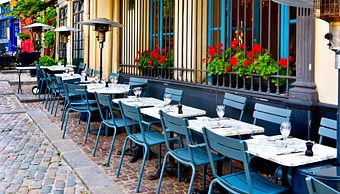the Restaurateur
A Restaurant’s Guide to Opportunity Zones
August 27, 2019Wondering how an investment in an opportunity zone can help your restaurant? Learn more about what these investment vehicles entail and how you can get involved.
Restaurant owners, have you considered the benefits of an investment in an opportunity zone? OZs are a new community development program established by Congress in the Tax Cuts and Jobs Act of 2017, to encourage long-term investments in low-income urban and rural communities nationwide. Check out our FAQ 1 and 2 for a few key points on these new investment vehicles. For now, let’s explore how they impact restaurants.
New guidance
The IRS released a second round of proposed regulations in May. The proposed regulations allow the deferral of all or part of a gain that is invested into a QOF that would otherwise be includible in income. The gain will be deferred until the investment is sold or exchanged, or until December 31, 2026, whichever is earlier. If the investment is held for at least ten years, the gain on the appreciation in the investment is permanently excluded.
Restaurants and Opportunity Zones
Restaurants built in OZs are lucrative for a number of reasons:
- They can help vitalize underserved communities
- The can attract local talent
- They offer restaurant owners a highly valued tax incentive.
Picture this
A restaurant LLC sells assets and generates a capital gain of $4,000,000 in 2018, but the assets sold are not located within a qualified opportunity zone. To reap the benefits of opportunity zones, the group reinvested the capital gain within the required 180 day period into a qualified opportunity fund (QOF). The fund uses $1,000,000 to purchase land in a qualified zone and constructs a $3,000,000 restaurant on the land, an investment it retains until December 31, 2030. The restaurant LLC then sells its investment for $15,000,000.
The restaurant can defer paying tax on its original gain until December 31st 2026, and it would receive the maximum step up basis of 15 percent. Hence the group would only be taxed on 85 percent of the original gain ($3,400,000).
The $11,000,000 gain attributable to the appreciation in its investment is permanently excluded from income and escapes taxation because the restaurant group retained its investment in the fund for at least 10 years.
What does the future hold for restaurants invested in OZs?
The clock is ticking to take full advantage of the tax savings offered through opportunity zones! To maximize the potential benefits, restaurant owners must invest in a QOF during 2019 (subject to the 180 day reinvestment period).
There are over 100 QOFs today, and it has been estimated that over $20 billion is being raised for investments in OZs. Interested in learning more about how this can help your restaurant? Reach out to us.



